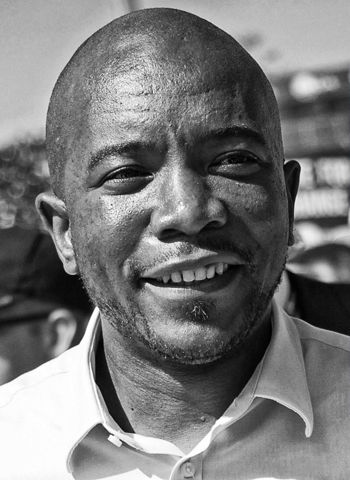As many South Africans honeymoon in the nascent first days of our Government of National Unity (GNU), we have to be fully aware that the problems facing the country are complex, interconnected and pressing.
The most insistent of them all is the high level of unemployment which has not shifted in the year 2024, and has remained stagnant for a decade and more.
https://www.youtube.com/watch?v=aRQibiVxxcg
Young people between the ages of 15-24 have an unemployment rate of 70% and those between the ages of 25-34 have an unemployment rate of 50%. With the country’s median age at 28, South Africa won’t grow until these young people become employable and find employment.
What is the role that the state has to play in the creation of employment? There are many schools of thought about the role of the state in a developmental nation in particular. The President has on occasion shown that he does not think it is the role of government to create jobs. The view of many of his administration is that the role of the state is to create an enabling environment for business.
This is half the story. The state has a role to play in not only the creation of an enabling environment, but also in the direct creation of jobs. The state hires various bureaucrats, professionals and technicians to serve a role in the public sector and in so doing, the state creates long-term employment.
One of the other much-vaunted interventions is the Expanded Public Works Programme (EPWP). The EPWP creates short-term employment opportunities. However, these types of programmes are not making the required impact. EPWP has been around since 2005 and in that time we have observed unemployment figures escalate.
The state also has a role in actively transforming the economy and the make-up of market actors. It is not merely a passenger; we have as South Africans expressed a commitment to undoing the injustices of the past which include economic injustices.
As chairperson of Parliament’s Standing Committee for Appropriations, I have been assessing the relationship between procurement and its usefulness in transforming the economy. It appears that while the state is spending large amounts of taxpayer money on the procurement of goods and services, it is not being done in a manner consistent with the purpose of creating openings and opportunities for new, small businesses.
Looking at the payment of suppliers, one notes a worrying pattern. Companies with youth ownership constituted 6%. Companies with women ownership constituted 10% of the suppliers paid and black-owned companies constituted 23% of suppliers paid.
On the periphery
These are groups which have been historically marginalised from key participation in the economy. They remain on the periphery of the economy despite being the useful subjects of many speeches delivered by the President and other politicians.
The employment we seek for our young people and for women will come from small businesses. It will come from communities which are empowered through inclusion into the mainstream economy. It will come particularly from businesses built by women, young people and black people.
Two shortcomings are apparent in how the state is operating. One, there is no business development of black business and suppliers for large industrial projects. And two, there is an over-reliance on multi-year supplier agreements. The net effect is that only the connected are winning.
We can address these issues and create opportunities for the excluded. We achieve this through the implementation of special economic zones (SEZs) in every township of South Africa. Currently we only have nine special economic zones and they have created only a few thousand jobs.
Not only will more SEZs assist in the job market, but they will also provide a unique opportunity to undo one of the major legacies of apartheid that persist today: the spatial economic exclusion of the majority of South Africa’s population through the policy of separate and unequal development.
This legacy is still visible in townships across the country, where economic opportunities remain limited and poverty and unemployment are rife.
Special Economic Zones are proven tools globally for increasing exports, attracting investment and driving economic growth. SEZs are defined as demarcated geographic areas within a country where the rules of business are different from those that prevail elsewhere. They offer a regulatory environment that encourages industrial development and economic activity.
According to the UNCTAD Handbook on Special Economic Zones in Africa, there are currently 237 SEZs in 38 African countries. Kenya leads with 61, followed by Nigeria (38), Ethiopia (18), South Africa (11) and Egypt (10). South Africa is lagging behind its continental competitors and we must act urgently to correct this.
We need to take more seriously the failures of the government to enforce transformation in the procurement process. This is not a call for the inclusion of cadres or a call for cadre deployment. It is rather a call for the rectification of the problem of the exclusion of these groups in a manner that is professional and ethical. DM




